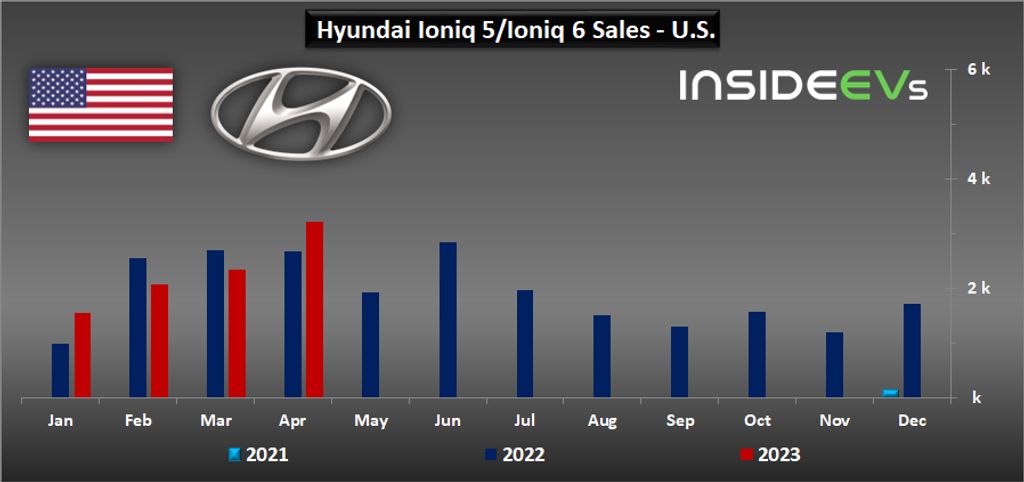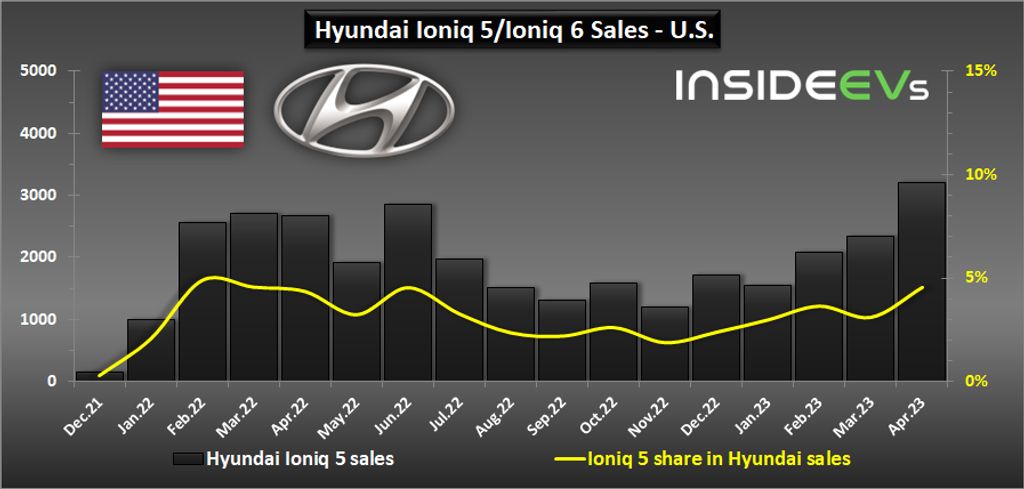Hyundai Motor America reports the best April ever in terms of car sales in the United States. Last month, the company sold 70,812 vehicles (up almost 15 percent year-over-year). After the first four months, Hyundai sold 255,261 units (up 15.3 percent year-over-year).
The South Korean brand is also increasing its all-electric car sales – specifically, sales of the E-GMP-based models (Ioniq 5 crossover/SUV and Ioniq 6 sedan).
In April, Hyundai BEV sales (excluding the Kona Electric, for which data remain unavailable), amounted to 3,213, which is the first-ever result above 3,000 in a single month. The year-over-year increase was 20 percent, while the Ioniq 5/Ioniq 6 share out of the brand’s total volume amounted to 4.5 percent.
It’s worth noting that the Ioniq 5 noted a slight decrease in sales by 13 percent year-over-year compared to 2,323, but we must remember that it’s not eligible for the $7,500 federal tax credit so it’s not a surprise. Meanwhile, the Ioniq 6 sales, in the second month on the market, approached 1,000 units.
Hyundai BEV sales last month:
So far this year, more than 9,000 Hyundai Ioniq 5/Ioniq 6 were sold in the US (up 3 percent year-over-year).
Hyundai BEV sales YTD in 2023:
- Hyundai Ioniq 5: 8,059 (down 10% year-over-year)
- Hyundai Ioniq 6: 1,112 (new)
- Hyundai Kona Electric: N/A
- Total Ioniq family: 9,171 (up 3% year-over-year) and 3.6% share
For reference, during the 12 months of 2022, the total sales of the Hyundai Ioniq 5 amounted to 22,982, which represented about 3.2 percent of the total volume.
This year, Hyundai will be affected by the Inflation Reduction Act of 2022 (IRA), which removed the $7,500 federal tax credit for imported BEVs, but that’s a temporary issue considering the already announced investments in local production.
Unfortunately, the official stats do not include the sales results of other all-electric or plug-in hybrid models, as they are counted together with conventional or non-rechargeable hybrids.
What we do know is that the Kona Electric is up 155 percent year-over-year, while the Tucson PHEV noted a 47 percent increase.
The hydrogen fuel cell model – Hyundai Nexo – noted just 16 units last month (down 66 percent). So far this year, 81 have been delivered, which is 62 percent less than a year ago.



